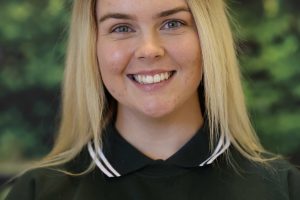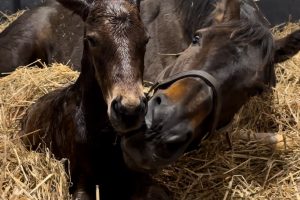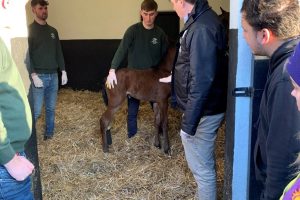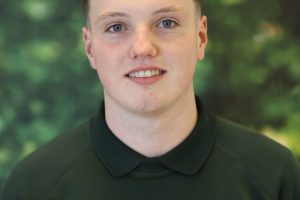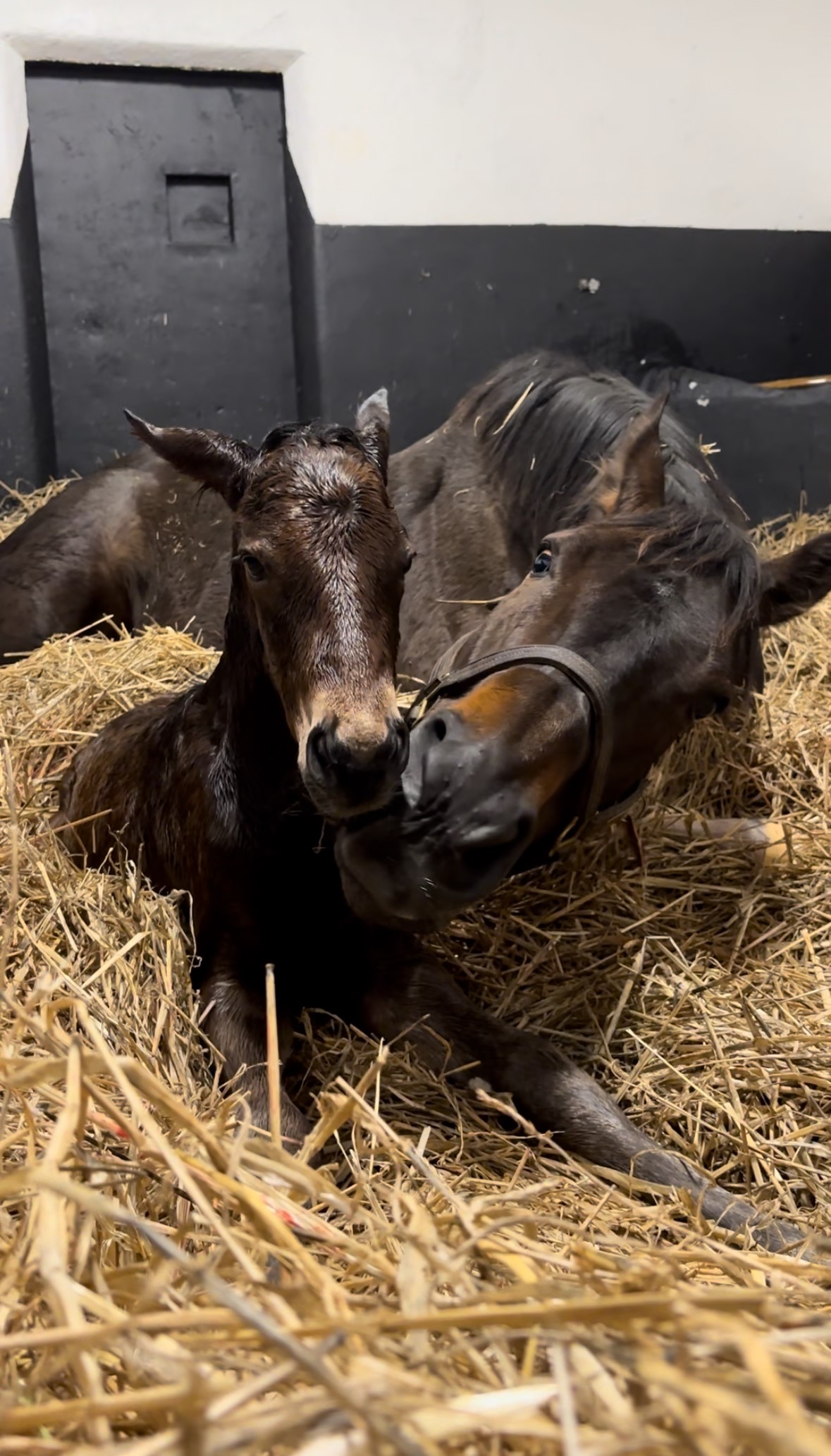
It was a return to normality for the students of the Irish National Stud this week, as the jam-packed Cheltenham festival came to a close. Those students who travelled across the water returned home, and after a busy bank holiday weekend socializing, it was time to get back to business. This week saw a return of lectures, project presentations as well as full working hours. Tuesday afternoon saw the students present their PowerPoint slides within their respected groups. Each student was placed into 1 of 5 groups, with every group having to identify a problem within the thoroughbred industry and finding executive solutions to solve them. Problems discussed amongst the groups included work/life balance, welfare, overbreeding & monopolisation of the sport.
On Wednesday, we had a practical lecture with Dr. Kevin Corley at the Sun Chariot yard. This lecture focused on an examination of a foal from a veterinarian’s perspective. Topics covered included ideal conformation, normal heart/breathing rates, examining joints, checking for broken ribs, & behavioural differences between sick and healthy foals. This lecture was very insightful, and Dr. Corley gave us some great tips in terms of what to look out for in young foals.
Finally, this week, one of our fellow students Tadgh McGuinness celebrated his 22nd birthday and was rewarded with his father Adrian winning a nice treble on Friday in Dundalk, with one of the winners Galician Girl being sired by our very own Phoenix Of Spain!
Luke
This week I was working in Blandford and Black Cherry under the guidance of Leona. The Blandford yard (which is named after the famous champion sire in the early 20th century) contains 12 mares and foals. The various tasks and jobs around Blandford include teasing mares, vet scans for both pre and post covering and turning out mares and foals to fields. During the day I would head over to the Black Cherry yard where I would power wash stables. Power washing is an extremely important method of biosecurity as it hinders the spread of diseases. When the boxes are fully washed out, they will be bedded down and can be used as an overflow yard when Kildare yard fills up with mares and foals.
Also, this week I was invited to take part in an academic review conference to discuss the current support mechanisms in place regarding the INS thoroughbred breeding course. I was grateful to be able to represent on behalf of the students and express my time on the course so far as well as my opinion on the course to the board. Personally, I couldn’t fault any aspects of the course during my first 10 weeks here, and I would highly recommend applying for this course to anybody who wishes to do so.
Finally, I started my second stint of nightshifts on Friday night, where we had 7 foals in total over the course of the weekend. My pick of the bunch would have to be a smart colt by Invincible Spirit who weighed in at 60kgs and is the head off his dad. Hopefully he can be as good as his dad is later in life!
Amber
It’s been an extremely busy but rewarding week here at the INS. Throughout the first half of the week, the long weekend for St. Patrick’s Day, I worked the night shift at the foaling unit in Sun Chariot for four nights. This is my favourite place to be during the breeding season and I had the privilege of working alongside Tara, an Irish student on the course. We had a busy couple of evenings with 10 foals arriving at all hours of the night from a wide range of stallions. The breeding season is in full swing now, and the stables are almost full of mares waiting to foal. The last foal I helped deliver on my night watch was number 116 so far this season.
After a break from the night shift, I spent the second half of the week working during the day shift in Sun Chariot. This includes still being on foal watch whilst the mares are turned out to their yards or paddocks for the day. We also completed the required daily jobs such as cleaning out stables, feeding, checking waters, topping up hay, as well as general tidying of the yard. Any vet work that is booked in for the day is completed in both the morning and evening.
Within the classroom, this week we had our group presentations for our personal and professional development unit. My group chose work-life balance, and its strain on those in the industry. It was a challenging but interesting assignment in which we had to develop methods for turning negative perceptions into positives, to enhance the future of the thoroughbred industry.
I feel incredibly privileged to be involved in the foaling process here at the Irish National Stud. It has solidified my career aspirations and has confirmed this is what I would like to be doing for the rest of my life. I have gained invaluable knowledge from our yard foreman while studying here, and I am extremely grateful for everything they have taught me, and I look forward to furthering my education over the next 3 months! Completing the thoroughbred breeding management course at the INS will greatly enhance my work in Australia by providing me with additional qualifications, as well as invaluable experience and knowledge of the northern hemisphere breeding protocols and expertise that can be implemented back home.
HAVE A QUESTION?
Drop a Line
Address
Irish National Stud & Gardens,
Brallistown Little, Tully, Co. Kildare,
R51 AP20, Ireland

